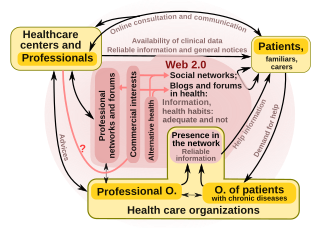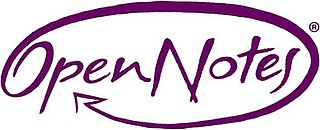
Palliative care is an interdisciplinary medical caregiving approach aimed at optimizing quality of life and mitigating suffering among people with serious, complex, and often terminal illnesses. Within the published literature, many definitions of palliative care exist. The World Health Organization (WHO) describes palliative care as "an approach that improves the quality of life of patients and their families facing the problems associated with life-threatening illness, through the prevention and relief of suffering by means of early identification and impeccable assessment and treatment of pain and other problems, physical, psychosocial, and spiritual". In the past, palliative care was a disease specific approach, but today the WHO takes a broader patient-centered approach that suggests that the principles of palliative care should be applied as early as possible to any chronic and ultimately fatal illness. This shift was important because if a disease-oriented approach is followed, the needs and preferences of the patient are not fully met and aspects of care, such as pain, quality of life, and social support, as well as spiritual and emotional needs, fail to be addressed. Rather, a patient-centered model prioritizes relief of suffering and tailors care to increase the quality of life for terminally ill patients.

In medicine, proton therapy, or proton radiotherapy, is a type of particle therapy that uses a beam of protons to irradiate diseased tissue, most often to treat cancer. The chief advantage of proton therapy over other types of external beam radiotherapy is that the dose of protons is deposited over a narrow range of depth; hence in minimal entry, exit, or scattered radiation dose to healthy nearby tissues.

Personalized medicine, also referred to as precision medicine, is a medical model that separates people into different groups—with medical decisions, practices, interventions and/or products being tailored to the individual patient based on their predicted response or risk of disease. The terms personalized medicine, precision medicine, stratified medicine and P4 medicine are used interchangeably to describe this concept though some authors and organisations use these expressions separately to indicate particular nuances.
Nicholas J. Vogelzang was a medical oncologist with Comprehensive Cancer Centers of Nevada (CCCN). He serves as Medical Director of the Research Executive Committee and Associate Chair of the Developmental Therapeutics and Genitourinary Committees for US Oncology Research. His research interests include clinical trials for genitourinary malignancies and mesothelioma.
Psycho-oncology is an interdisciplinary field at the intersection of physical, psychological, social, and behavioral aspects of the cancer experience for both patients and caregivers. Also known as psychiatric oncology or psychosocial oncology, researchers and practitioners in the field are concerned with aspects of individuals' experience with cancer beyond medical treatment, and across the cancer trajectory, including at diagnosis, during treatment, transitioning to and throughout survivorship, and approaching the end-of-life. Founded by Jimmie Holland in 1977 via the incorporation of a psychiatric service within the Memorial Sloan Kettering Cancer Center in New York, the field has expanded drastically since and is now universally recognized as an integral component of quality cancer care. Cancer centers in major academic medical centers across the country now uniformly incorporate a psycho-oncology service into their clinical care, and provide infrastructure to support research efforts to advance knowledge in the field.

"Health 2.0" is a term introduced in the mid-2000s, as the subset of health care technologies mirroring the wider Web 2.0 movement. It has been defined variously as including social media, user-generated content, and cloud-based and mobile technologies. Some Health 2.0 proponents see these technologies as empowering patients to have greater control over their own health care and diminishing medical paternalism. Critics of the technologies have expressed concerns about possible misinformation and violations of patient privacy.
Douglas S. Scherr, M.D. is an American surgeon and specialist in Urologic Oncology. He is currently the Clinical Director of Urologic Oncology at Weill Cornell Medicine. He also holds an appointment at the Rockefeller University as a Visiting Associate Physician. Scherr was the first physician at Cornell to perform a robotic prostatectomy as well as a robotic cystectomy.
Geriatric oncology is a branch of medicine that is concerned with the diagnosis and treatment of cancer in the elderly, usually defined as aged 65 and older. This fairly young but increasingly important subspecialty incorporates the special needs of the elderly into the treatment of cancer.

Oncology is a branch of medicine that deals with the study, treatment, diagnosis and prevention of cancer. A medical professional who practices oncology is an oncologist. The name's etymological origin is the Greek word ὄγκος (ónkos), meaning "tumor", "volume" or "mass". Oncology is concerned with:

In general, quality of life is the perceived quality of an individual's daily life, that is, an assessment of their well-being or lack thereof. This includes all emotional, social and physical aspects of the individual's life. In health care, health-related quality of life (HRQoL) is an assessment of how the individual's well-being may be affected over time by a disease, disability or disorder.
Simon J. Hall is an American researcher who is the Associate Professor and Kyung Hyun Kim, M.D. Chair of Urology and Assistant Professor, Department of Gene and Cell Medicine at The Mount Sinai School of Medicine, as well as the Director of the Barbara and Maurice Deane Prostate Health and Research Center at The Mount Sinai Medical Center, both in New York City.
An informal or primary caregiver is an individual in a cancer patient's life that provides unpaid assistance and cancer-related care. Due to the typically late onset of cancer, caregivers are often the spouses and/or children of patients, but may also be parents, other family members, or close friends. Informal caregivers are a major form of support for the cancer patient because they provide most care outside of the hospital environment. This support includes:
The Pancreatic Cancer Action Network (PanCAN) is a United States-based 501(c)(3) charity that funds research, provides patient/caregiver support, conducts community outreach and advocates for increased federal research funding for those affected by pancreatic cancer.

OpenNotes is a research initiative and international movement located at Beth Israel Deaconess Medical Center.
Margaret Ruth McCorkle FAAN, FAPOS was an American nurse, oncology researcher, and educator. She was the Florence Schorske Wald Professor of Nursing at the Yale School of Nursing.
Brain Tumor Social Media (#BTSM) is a patient and care partner-run, grassroots Twitter community. The Twitter account @BTSMchat hosts bi-monthly tweet chats for the #BTSM community and consistently trends among the top 15 of disease-related tweet chats. A study published in 2020 revealed the hashtag was most commonly used by brain tumor patients (33.13%), along with patient advocacy organizations (7.01%), care partners (4.63%), and clinicians (3.63%) and researchers (3.37%) specializing in brain tumors and brain cancers.
Declan G. Murphy, FRACS, FRCS, is a urologist, director of the unit for genitourinary oncology and robotic surgery at the Peter MacCallum Cancer Centre in Melbourne, Australia, professor at the Sir Peter MacCallum Department of Oncology at the University of Melbourne, and associate editor of the British Journal of Urology International. In 2010 he introduced robotic surgery for urology to the public sector health services in Victoria, Australia.
William Pao is an oncologist and Executive Vice President and Chief Development Officer of Pfizer. He was previously the head of Pharma Research and Early Development (pRED) at Roche and a professor of medicine at the Vanderbilt University Medical Center. He is best known for his work in molecular oncology and cancer genomics.

Psychosocial distress refers to the unpleasant emotions or psychological symptoms an individual has when they are overwhelmed, which negatively impacts their quality of life. Psychosocial distress is most commonly used in medical care to refer to the emotional distress experienced by populations of patients and caregivers of patients with complex chronic conditions such as cancer, diabetes, and cardiovascular conditions, which confer heavy symptom burdens that are often overwhelming, due to the disease's association with death. Due to the significant history of psychosocial distress in cancer treatment, and a lack of reliable secondary resources documenting distress in other contexts, psychosocial distress will be mainly discussed in the context of oncology.








